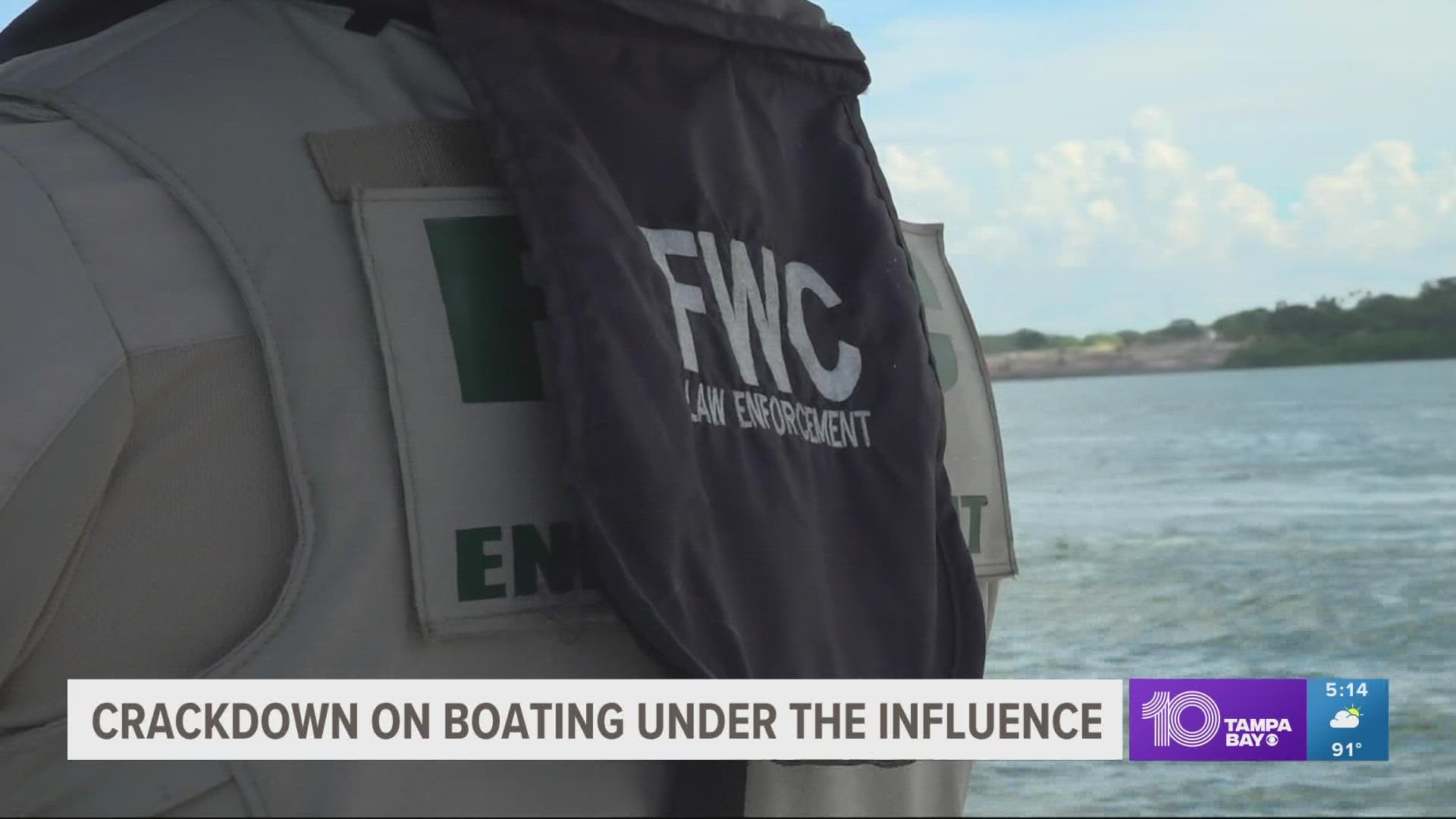ST. PETERSBURG, Fla. — Florida is the boating capital of the world.
There are more than one million registered boats across the state, so it’s no surprise we see the most boating accidents, as well.
U.S. Coast Guard data also shows Florida ranked No. 1 with the most boating-related deaths in 2020 at 72. However, the state's fatality rate, a figure calculated by dividing the number of fatalities by the total vessel registration and then multiplied by a factor of 100,000, was outside the top 10 states.
According to The Florida Fish and Wildlife Conservation Commission's, 20% of the boating fatalities in 2021 were alcohol or drug-related.
“On a holiday weekend, people like to celebrate. We have zero tolerance, and that leads us actually to why we have so much enforcement this weekend," Forest Rothchild, public information officer for FWC, said.
It’s part of an ongoing effort to cut down on the number of people who choose to drink behind the wheel of a boat.
“Don’t be out here operating a boat while impaired, we had three fatalities last year [in Hillsborough County] and that’s three too many,” Hillsborough County Sheriff Chad Chronister said.
Law enforcement says oftentimes a boat will be stopped for a life jacket or equipment check, and if someone's been drinking during the stop, it will turn into an arrest. As of Monday, 21 people across the Tampa Bay area had been arrested for boating under the influence throughout the Labor Day weekend.
“Just like a vehicle, it's a 0.08 alcohol limit for operating a vessel. If you are caught impaired, you can actually go to jail," Rothchild said.
Here are some recommendations from the FWC on safe boating practices:
- Never boat under the influence. Have a designated sober operator.
- Always wear a life jacket aboard a vessel.
- Have a float plan. Let family and friends know where you are going and when you will return. The sooner rescuers can get on the water and to the location of an overdue boater, the more likely the outcome will be positive.
- Purchase, register and have on board the boat an emergency locator beacon. This could be an Emergency Position Indicating Radio Beacon (EPIRB) or a Personal Locator Beacon (PLB). These devices can be used by any boater to ensure search-and-rescue teams find you quickly in the event of an emergency.
- Take a boating safety course. According to FWC boating accident statistics, 69% of operators involved in fatal boating accidents in 2020 had no formal boater education.
- Watch the weather. The National Weather Service broadcasts marine weather forecasts regularly by radio or check the NWS website at noaa.gov.
You can report people who are operating boats dangerously by calling 888-404-3922 or texting Tip@MyFWC.com.
For more information, you can visit the FWC website.

